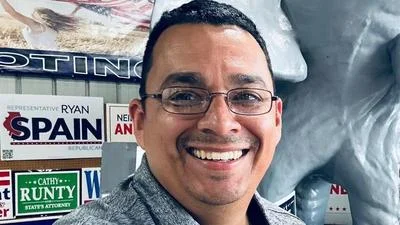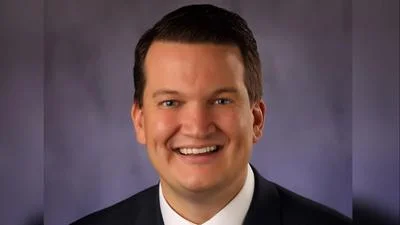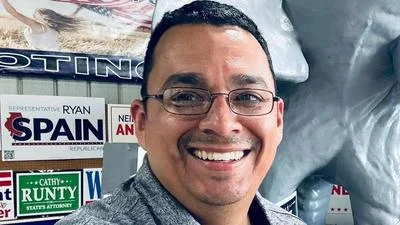Jo Daviess County Finance, Tax & Budgets Committee met July 27.
Here is the minutes provided by the committee:
PRESENT: Steve Allendorf, John Schultz, Staci Duerr, Diane Gallagher, John Lang and Scott Toot (7:10 pm)
ABSENT: Brandon Behlke and Ron Smith
Other Board members: None
Others: Donna Berlage, Melisa Hammer, Dan Reimer and Jamie Watson
1. Call to Order – Steve Allendorf called the meeting to order at 6:32 pm.
2. Roll Call – A quorum was established.
3. Approval of Minutes – John Schultz made a motion to approve the May 30, 2019 Finance, Tax & Budgets Committee meeting minutes as presented. Seconded by Diane Gallagher and motion passed.
4. Citizens Comments – None
5. Unfinished Business
a) Update on Hotel/Motel Tax, Guest Accommodations/Online Travel Agencies/Education and Enforcement – Dan Reimer commented that he did not have any more information to report at this time.
b) Discussion and possible action on an approval process associated with the hiring freeze policy – Steve Allendorf discussed that he would like to see a written policy developed and asked Dan Reimer if he could draft a policy for committee review. The Committee discussed how a policy might apply to regular part-time positions and/or seasonal help. Dan Reimer added that there is a difference between adding a new position that is not in the budget versus filling a vacant position that is already included in the budget plan. During the budget process is the best time to consider any new positions. Allendorf recommended that personnel requests first be discussed with the parent committee and then go to the Finance Committee and/or Executive Committee for approval before going to the full County Board. If there are ways to reduce our expenses, Allendorf seriously feels we need to be doing that. The best way to do that is through personnel and the associated expenses. Department Heads should be required to demonstrate that the position is absolutely needed. Attrition is another way to reduce expenses. Reimer discussed that most financial policies are reviewed during the budget process and any amendments or revisions are finalized during the Budget Workshops in October. Melisa Hammer discussed that you can’t spend down fund balance without showing a budget deficit.
c) Update on the Jo Daviess County Purchasing Card Policy – Dan Reimer reported that the Purchasing Card Policy was reviewed again at the June Department Head meeting. There were a couple of sales tax charges this month. Reimer asked for direction on enforcement if a violation occurs. Violations are less frequent since the policy has been addressed. The Committee discussed the policy and the consensus is to keep monitoring the policy and see how it goes.
6. New Business
a) Discussion and possible action on Committee assignments from 2019 County Board Planning Retreat – Dan Reimer pulled up the committee assignments from the 2019 County Board Planning Retreat. Other committees have added back some items from the previous 2017 assignments that weren’t on the list. The committee reviewed their assignments. Staci Duerr discussed item #3 Research expense savings measures and suggested that as departments work through the budget process they identify areas that could save money. Employees who work here every day know little places where money could maybe be saved. The Committee discussed a possible employee cost savings incentive program. Department Heads in attendance felt that such a program could be a good morale booster and recommended that it be discussed at a Department Head meeting.
b) Discussion and possible action to establish the Public Defenders Records Automation Fund and Associated Fund Description – Dan Reimer commented that Circuit Clerk Kathy Phillips, States Attorney John Hay, Treasurer Melisa Hammer, Probation Director Jamie Watson, Sheriff Turner and himself met to discuss the new fee schedule for the courts. A new fund will be required, a Public Defenders Records Automation Fund. John Hay drafted a resolution which was included in the informational packet. This will is a special revenue fund. We will budget for it in the 2020 budget, but in the meantime we have to have someplace to deposit the revenue. An associated fund description was discussed. John Schultz made a motion to approve a resolution to establish the Public Defender Records Automation Fund (084) and Associated Fund Description. Seconded by Diane Gallagher and motion passed.
c) Discussion and possible action on a Resolution to Deposit Sobriety Court Fees Collected After June 11, 2019 into the Probation Services Fund (033) – Jamie Watson discussed that at the June 11th County Board meeting the board adopted a resolution to stop collecting the sobriety court fee immediately, dissolve the Sobriety Court Fund at the end of this month effective June 30th and transfer all the assets from the Sobriety Court Fund to the Probation Services Fund to be used to help indigent offenders that come through our office to pay for some treatment costs. What we didn’t realize was there have been fees that have been assessed to certain individuals that have not been paid. Some of them have been outstanding for several years. If someone decided to pay their fees a year from now we don’t have any language to say where that money is going to go. That is the reason for this resolution. John Lang made a motion to approve a Resolution to Deposit Sobriety Court Fees Collected After June 11, 2019 into the Probation Services Fund (033). Seconded by John Schultz and motion passed.
d) Discussion and possible action regarding items associated with the FY2020 Jo Daviess County Budget –
i. Review FY2020 Round 1 Revenue Estimates - Dan Reimer, County Administrator reviewed a handout for STEP 4 of the FY2020 Budget process. Reimer discussed that the following Step 4 items will be covered; review round 1 revenue estimates, determine preliminary distribution of 2019 property tax levy (payable FY2020) and approve FY2020 budget guidelines to be used in establishing initial funding amounts for departments and agencies. Reimer explained that revenue forecasting represents an essential component of budgeting and is perhaps the most critical step in achieving a balance budget. Preliminary (Round 1) revenue estimates are intended to serve as the basis, or starting point for developing the allowable levels of spending on the expense side of most county budgets including the General Fund budget. The Jo Daviess County budget is developed by using a 15 step target-based budget process. Over the years target-based budgeting has proven to simplify the budget preparation process, ensure the County’s budget process remains organized, reduce interdepartmental conflict, and has assisted the County in providing essential services to the residents and taxpayers of Jo Daviess County in a fiscally responsible manner. County Departments and agencies are familiar with the process. Target-based budgeting also enables the Finance, Tax & Budgets Committee to limit budget requests to expected revenue levels, while giving departments an opportunity to make a case for extraordinary needs. Preliminary (Round 1) FY2020 revenue estimates for the seven (7) Jo Daviess County operational funds indicate an overall increase of $570,298, or 4.8% from prior year. Preliminary Round 1 revenue estimates do not include a property tax levy increase. Departments with budgets that receive an annual property tax allocation were requested to leave this line item at the same amount as the FY2019 budget and/or certified amount. Historically, the Finance, Tax & Budgets Committee establishes preliminary tax levy distribution amounts at their June meeting. Last year there was uncertainty if a property tax freeze would be included in the State’s FY2019 budget; as a result property tax allocation decisions were not made until the budget workshops in September and October. This year there is some uncertainty with several of the Jo Daviess County operational budgets. The Finance, Tax & Budgets Committee will have an opportunity to make preliminary decisions on the distribution of the property tax levy in Section H.
ii. Establish initial allocation of 2019 property tax levy (payable 2020) – Reimer explained that Jo Daviess County is a PTELL (Property Tax Extension Limitation Law) County. The estimated allowable property tax extension increase for 2019 (payable 2020) is $182,659. To determine this amount, several variables were considered. The County Assessor’s Office estimated the 2019 gross assessed valuation of Jo Daviess County to be $806,000,000; this compares to a gross assessed value of $801,429,524 in 2018, $783,312,690 in 2017, $761,137,644 in 2016. This total includes an estimated $7,000,000 in new property/construction. Using a formula of total EAV plus state assessed minus exemptions minus TIF and Enterprise Zone the County Clerk’s Office estimated the 2019 taxable EAV for Jo Daviess County to be $743,560,224.
The County Clerk’s Office estimated the overall maximum aggregate tax levy extension for 2019 (payable 2020) to be $6,545,309. This amount represents an increase of $182,773 or 2.87% more than the 2018 PTELL certified levy extension of $6,362,536. This amount is $7,297 or 3.8% less than the actual 2018 increase amount (payable 2019) of $190,070. Approximately $120,888 or 66.1% of the proposed 2019 property tax levy increase (payable 2020) is the result of a 1.9% inflationary CPI increase on existing property, approximately $61,885 or 33.9% is the result of an estimated $7 million increase in EAV associated with new property/construction.
Reimer discussed that for purposes of developing Round 1 revenue estimates, the Finance, Tax and Budget committee must decide how to distribute the estimated $182,773 increase in allowable 2019 property tax levy (payable 2020). Reimer reviewed four possible options for the distribution of the property tax levy. For purposes of developing preliminary Round 1 General Fund revenue estimates and target expense guideline recommendations; management used tax levy distribution option #4. John Lang made a motion to approve the use of option #4 for initial distribution of the 2019 Jo Daviess County Property Tax Levy (payable 2020). Seconded by John Schultz and motion carried.
iii. Establish initial allocation of FY2020 County (1%) sales tax – Reimer explained that Jo Daviess County receives approximately $400,000 of County (1%) sales tax annually ($418,958 projected for FY2020) for its share of retail sales tax collected by the State from businesses in unincorporated areas of the County. Each year the County Board considers how this tax will be allocated. Every year since FY2002, except for one year, the County (1%) sales tax has been divided 50/50 between the General Fund and Highway Fund. It is recommended that an initial FY2020 distribution percentage be determined now at the beginning of the budget process, this gives each fund a better opportunity to plan for the expense side of their budget. Due to the large FY2019 General Fund deficit, and the prospect of a continued budget deficit for F2020, Reimer recommended that the initial distribution of County (1%) sales tax be allocated 75% General Fund and 25% Highway Fund 50%. John Lang made a motion to establish the initial distribution of FY2020 County (1%) sales tax at a rate of 75% General Fund and 25% Highway Fund. Seconded by Diane Gallagher and motion passed.
iv. Establish FY2020 Expense Budget Guidelines – The committee reviewed the FY2020 budget guidelines. Reimer discussed some of the variables that will affect the final bottom line of the FY2020 General Fund budget. During the early stages of developing the FY2020 Jo Daviess County budget certain assumptions must be made regarding key budget variables. Many of these assumptions will change or need to be adjusted as new information becomes available and additional organizational decisions are made. Reimer recommended that the following budget guidelines be used to establish FY2020 Jo Daviess County expense budgets:
1. The target-based budgeting process shall be used to establish the twenty eight (28) General Fund expense budgets and a modified target-based process shall be used to establish the fifty-nine (59) Special Revenue Fund expense budgets.
2. Personnel related expense line items shall be considered mandatory expenses for all County budgets (General Fund and Special Funds) and shall include salaries and wages, employee fringe benefits and shall be calculated as follows:
a. Employer retirement contribution rate – IMRF 10.96%, SLEP 23.29%
b. Health Insurance – 4.1% rate increase
c. Salaries and wages - compensation increase per position classification compensation plan; comparable average increase of 2.7% for probation officers; per collective bargaining agreements for union employees (budgets to be finalized during Budget Workshops); per resolution for elected officials and 2.7% for employees of the Health Department.
d. S.S./Medicare – increase/decrease proportionally to payroll estimates
e. Postage – is no longer considered a mandatory expense
3. The County Administrator’s office shall calculate mandated line item expenses for General Fund expense budgets prior to packet distribution and shall assist in the calculation of mandated expenses for operational Special Fund budgets.
4. The initial FY2020 target amount for each General Fund expense budget, after allocating increases/decreases for allowable mandated expenses, shall be set at the same baseline level (zero increase) as the final FY2019 target amount less any non-recurring expenses added during the FY2019 budget process including any approved un-funded requests.
5. All Interfund Transfers scheduled in FY2019 shall be maintained unless otherwise instructed. Any request to change, revise, or add an interfund transfer shall be submitted to the County Administrator’s Office along with a letter or memo explaining the purpose of the change, revision, or addition. Requests will be submitted to the Finance, Tax & Budgets Committee for review and approval.
6. Any new mandated expense or any new expenses which will increase per an existing contract or agreement shall be allowed to increase the target amount accordingly, with review and approval by the Finance, Tax & Budgets Committee.
7. Any new necessary expense that causes the target amount to be exceeded should be submitted to the County Administrator’s Office as an overage request with a detailed letter of explanation. Overage requests will be reviewed by the Finance, Tax & Budgets Committee. If the Committee determines the request is a necessary expense, the target amount will be increased accordingly. If the Committee does not consider the request a necessary expense, the request will be submitted as an unfunded activity.
8. Any new General Fund request or activity not considered a mandatory or necessary expense, and exceeds the department target amount(s), the requesting Department Head(s) shall submit as an unfunded activity on an unfunded expense estimate form. These forms will be used to rank unfunded activities and be used as a reference point for approving further expenditures if additional revenue is identified or resources are allocated.
9. Special Fund Budgets - Departments with Special Fund budgets are requested to follow the same guidelines as General Fund departments. The initial target amount for each Special Fund will be set at the same amount as the final FY2019 budget amount. Any increase or decrease of $2,000 or more, in any expense line item, from the amount appropriated in that line item in the previous year shall include a detailed explanation in the expense notes. Any anticipated appropriation of fund balance is to be explained in a detailed memorandum.
10. Initial funding amounts for agencies, who receive funding from the Jo Daviess County General Fund, shall be set at the same level of funding as appropriated in the FY2019 budget.
John Lang made a motion to not include Sheriff Command stipends in the budget guidelines for personnel related expense line items. Seconded by John Schultz and motion passed. John Lang made a motion to approve the FY2020 expense budget guidelines as presented for Jo Daviess County General Fund expense budgets and Special Fund expense budgets and set initial FY2020 agency funding amounts at the same funding level as appropriated in the FY2019 budget. Seconded by John Schultz and motion passed.
7. Staff Reports
a) Chief County Assessment Office – Donna Berlage, Chief County Assessor, reported that the Township Assessors have turned in their work for 2019. We have been reviewing the changes to make sure everything is correct. Berlage has not received the 2019 sales ratio study from the State yet. The Board of Review met on June 4th to open up their 2019 session. They reviewed Senior Assessment Freeze applications, Disabled Person exemptions and Disabled Veteran exemptions.
b) Treasurer’s Office – Melisa Hammer, County Treasurer, reported that the first tax due date was June 3rd. The first tax distribution to the taxing bodies was completed yesterday in the amount of $11.5 million. We have collected approximately $36 million to date and we are looking at a total of approximately $56 million.
c) Grants Administrator – Trina Orr, Grants Administrator, was not in attendance.
d) County Administrator – Dan Reimer, County Administrator, reviewed the six months financial reports. This is a good time to review them because we are halfway through the fiscal year. In general everything is on track compared to budget; there are no major concerns at this point.
8. Citizens’ comments - None
9. Board Member Concerns – Scott Toot reminded the committee members to remember to turn in their per diem reports in a timely manner. Steve Allendorf thanked everyone for their hard work, participation and opinions tonight.
The next Finance, Tax & Budgets Committee meeting will be on Thursday, July 25, 2019 @ 6:30 p.m.
Staci Duerr made a motion to adjourn at 9:30 pm. Seconded by John Schultz and motion passed.
https://www.jodaviess.org/vertical/sites/%7B7C77C92D-D4A3-4866-8D3D-FE560FE5CFC8%7D/uploads/Finance_Minutes_06.27.19.pdf




 Alerts Sign-up
Alerts Sign-up